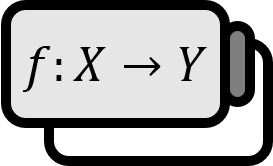Derivation of the Base Change Formula for Logarithms
Formula
For any positive number $c>0$, $$ \log_{a} b = {{ \log_{c} b } \over { \log_{c} a }} $$
Explanation
Nowadays, the formula itself has become less meaningful, but it still holds significant value for entrance exams. It is recommended to solve many practice problems suitable for the title of ‘formula’, rather than underestimating it simply because it appears to be a simple property.
Derivation
If we say $x := \log_{a} b$, according to the definition of logarithm, $$ a^x = b $$ Taking $\log_{c}$ on both sides, $$ \log_{c} a^x = \log_{c} b $$ By the property of logarithms, when we bring down $x$, $$ x \log_{c} a = \log_{c} b $$ Dividing both sides by $\log_{c} a$, $$ x = {{ \log_{c} b } \over { \log_{c} a }} $$ But since we initially said $x = \log_{a} b$, $$ \log_{a} b = {{ \log_{c} b } \over { \log_{c} a }} $$
■
